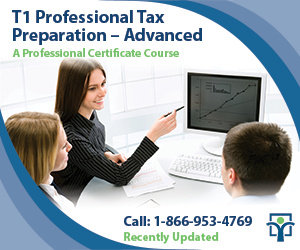Last updated: August 30 2016
Campgrounds Back in Tax News

CRA has provided an update to its audit position on campgrounds and the use of the Small Business Deduction when there are fewer than five full time employees. The degree to which significant additional services are “integral to the success of its business operations” will make the difference for campgrounds which do a bit of both: in fact the more services provided, the better the chances that the SBD may be allowed.
You may recall the story we covered in May, when $250,000 owing in back taxes by a campground in Ontario, because its income was considered to be rental income, which does not qualify for the SBD rather than service income, which does. CRA has clarified last week, what some of those additional services might be:
- Coin operated laundry
- Swimming pool and lifeguard
- Playground
- Garbage disposal
- Retail outlets which sell food and other supplies
Income qualifying for the small business tax rate is income that stems from capital employed or risked in the business, and that this does not include income from “property” which is not connected to, or necessary to, sustain the corporation’s business operations. Also excluded is income from a specified investment business carried on in Canada.
These definitions are outlined in CRA’s IT 73 R6, which interprets Section 125, subsections 14(1), 123.4, 129(4), and 129(6), the definitions “active business” and “specified shareholder” in subsection 248(1), paragraph 18(1)(p), subparagraph 12(1)(e)(ii) of the Income Tax Act and section 6701 of the Income Tax Regulations.
 |
In its August 23, 2016 posting CRA notes “Generally, the business of a campground involves the renting of property and providing basic services typical to that type of rental operation. In such a situation, the principal purpose of that business would be to earn rental income from real or immovable property and the corporation would not be eligible for the small business deduction, unless it employs more than five full-time employees in that business throughout the year.
That’s where the trouble begins with qualifying for the small business deduction, as many campgrounds do not employ more than five full-time employees throughout the year.
The property must be “incident to” an active business, or held primarily to gain or produce income from an active business, in order for the income to qualify for the small business tax rate. Otherwise it is a question of fact whether the property is used primarily in an active business, and the onus of proof is on the taxpayer.
The guidelines provided by CRA will help to determine the factors to be considered in whether or not the property is used in an active business. Each case, however, will determined on its own merits.
Additional Educational Resources: Tax Services Specialists who train through Knowledge Bureau are required to add a research component to their studies through access to EverGreen Explanatory Notes, an 800-topic online research library that is connected to all the relevant sections of the Income Tax Act for each topic, as well as to CRA’s publications on the matters.





